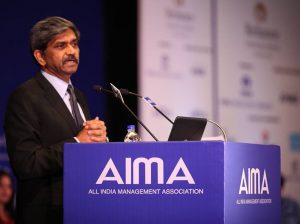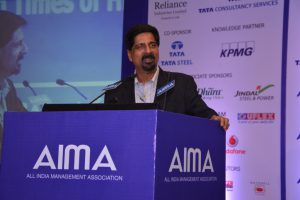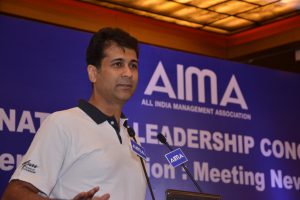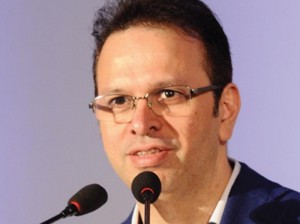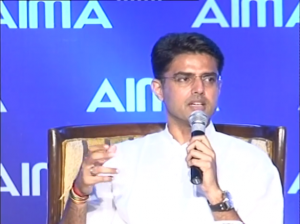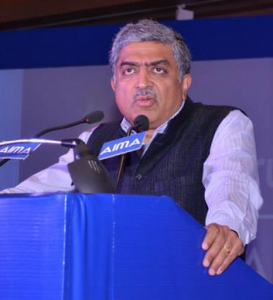AIMA celebrated its 60th Foundation Day & 10th National Management Day on 20th February 2016 at Hotel Le Meridien, New Delhi. The theme of the celebrations was “Smart India”. General Bikram Singh, PVSM, UYSM, AVSM, SM, VSM (Retired), Former Chief of the Indian Army & Chairman, Chiefs of Staff was the Chief Guest. Below is an excerpt of his speech on ‘Smart India’.

General Bikram Singh, PVSM, UYSM, AVSM, SM, VSM (Retired), Former Chief of the Indian Army & Chairman Chiefs of Staff addressing the Inaugural session.
I have been associated with AIMA for a while now and this is the third time I am here. One of the reasons for accepting this opportunity to be here today is also the theme ‘Smart India’. To a soldier, anything that talks about enhancing the honor and prestige of India is something which is very appealing and the event theme ‘smart India’ is indeed very appealing. I am sure, not only to a soldier but to all of us.
As a soldier when I envision the Smart India dream, which has been annunciated by our honorable Prime Minister, the foundation of this dream hinges on technology. It hinges on the digital India. But I think we need to take up more holistic view of this entire dream.To convert it into reality, I feel there are three prongs of the strategy which have got to be borne in mind. The first one is creating the Ecosystem, the environment which is smart. Second, we have to ensure that we have to be able to monitor and manage this environment through E-governance and the last but not the least which we tend to forget is that, this entire dream has got to be transformed into reality by all of us, by the nation. We got to train our leaders, managers and skill the people to make sure that this dream comes true. Therefore, the transformation hinges on all of us.




